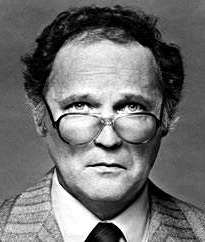by Matt Mattson
 The Dean’s List from this semester = Your fraternity’s/sorority’s new friends next semester.
The Dean’s List from this semester = Your fraternity’s/sorority’s new friends next semester.
Go.
(Example: MSU Business School Fall ’09. Fall ’10 will be out soon.)
<— That’s Dean Vernon Wormer for you youngsters.
The results of the first phase of Phired Up’s first research project are in and we are phreakin’ excited about them!
Download the full research report here:
This study represents a major first step in the direction we want to push our fraternity/sorority partners in thinking about organizational growth. To put it plainly, our 100+ year-old organizations have done a poor job of gathering helpful data to support decision-making around the most important part of our operations – recruitment. Everything we do (and don’t do) springs from the way we recruit. We are proud to significantly add to the base of public knowledge surrounding recruitment and membership selection.
Through years in the field of fraternal advising, we’ve noticed a trend: many organizations are seeking a sustainable, data driven process by which they can select the members that are most likely going to fit, persist, and succeed in their organizations. This study, “The Best of the Best Assessment” sought to examine common traits and common life experiences of fraternity and sorority students who are the best of the best. The best of the best students are defined as those who are exceptionally excellent. These members stand out among all the rest. We define common traits as a skill or personality characteristic (e.g., making others happy, kind, smart) and life experiences as a concrete encounter, situation, background, or condition. Examples of life experience include athletic involvement, large family, or chess player. Our primary focus was to answer the overarching question: What makes the very best members of fraternities and sororities?
Here is how we began to answer that question:
We asked over 100 professionals open ended questions to identify common themes, interviewed and/ or surveyed almost 200 best of the best students themselves to find out their traits and experiences, and analyzed the results of all three of those methods. We used a technique to analyze this data called “coding for words and themes”. The analysis resulted in the 15 themes you see below.
BEST OF THE BEST STUDENTS ARE:
What we are doing next? We are now creating and testing a survey to measure whether or not a potential new member is a best of the best student. We are testing that survey for content and construct validity to make sure you get the most valid and reliable tool possible. We are also creating a values based selection criteria for use during more formalized recruitment processes. When this is all over, communities, organizations, and individuals will have a reliable and revolutionary way to select members.
Good research always sparks more questions. We would love to hear yours! Here are just a few from our staff:
At Phired Up we are all about innovation but nothing can ever be innovative without participation. Your participation in this research study through answering questions, being supportive, participating in interviews, or just plain getting phired up about it were vital to our work. Thank you! Be on the look out for even more from the Phired Up research area. Until then- keep on being curious…
by Josh Orendi and Matt Mattson
Missed Rush?
NKU (Northern Kentucky) Sigma Phi Epsilon deserves credit for a brilliant idea that helped spark their young chapter’s recruitment burst. After a poorly attended fall rush week the chapter took matters into its own hands and hosted a campus-wide “Missed Rush?” marketing push and information session about 3 weeks after formal rush week. The group was able to generate interest from dozens of men that didn’t know about the first rush week or were not able to participate.
As an alumnus of the group reports, “this was our first time experiencing taking members throughout the year … it worked … so we kept doing it.” It’s a great feeling picking up men throughout the semester.
Sneak Peak

Take that idea one step further and apply it to the end of the semester (around NOW). How about a 3-5 day period called “Recruitment Sneak Peek.” Offer a preview opportunity for students considering membership in fraternities/sororities next semester. Perhaps it includes highly visible marketing activities (all-campus event, tabling, etc.) Perhaps it includes a targeted push to get RA’s, Student Government Leaders, Orientation Leaders, Cultural Student Organization Leaders, and other students in positions of influence to have lunches with your members.
No matter the details, make sure to create opportunities like this to gather names, start forging relationships, and driving interest in your organization (and show interest in non-members).
It doesn’t require a lot of planning. You don’t have to wait for your organization’s governing council to make it happen. It just requires effort. Go.
by Josh Orendi
Chapters practicing Dynamic Recruitment understand the deep value of the 1-on-1 meeting. This is often the first personal interaction with a potential member after adding him/her to your Names List. With so many things you could choose to talk about, here’s a little insight into what the top fraternity/sorority recruiters in the country are focused on during their initial meetings:
Set Up:
Content:
Remember to update your Names List immediately. Consider sending a text or Facebook message right after to say “thanks” for meeting and remind them when you’ll be getting back together. Now you’re doing “results producing” Dynamic Recruitment!
[RING OF PHIRE: The Ring of Phire is a team of undergraduate fraternity and sorority members dedicated to delivering the messages of Phired Up Productions to their peers around the country.]
by Amelia Mieth (Ring of Phire Member)
“Bosnia. They don’t have roads, but they have Facebook.” -The Social Network
 It’s amazing to think about, really. Places where they don’t have developing roads have a way to connect to the entire world at the click of a mouse. It seems that Facebook itself is constantly growing, as is the story behind it. I recently saw the new movie The Social Network- mainly for Justin Timberlake, but I also wanted to learn more about this entity that is defining a generation.
It’s amazing to think about, really. Places where they don’t have developing roads have a way to connect to the entire world at the click of a mouse. It seems that Facebook itself is constantly growing, as is the story behind it. I recently saw the new movie The Social Network- mainly for Justin Timberlake, but I also wanted to learn more about this entity that is defining a generation.
In the movie, we are introduced to Mark Zuckerberg, the creator of Facebook. The movie begins with a conversation based around Final Clubs. After listening to the dialogue, a light bulb goes off in my head, “A Final Club is similar to a fraternity! Greek life in the movies, hurray!” It is Zuckerberg’s goal to be accepted into one of the clubs, sealing his place in the Harvard social scene.
Without giving too much of the movie away, the portrayal of one of the Final Clubs is similar to that of a movie or TV fraternity – hosting raging parties, hazing new members, and an odd sense of recruitment. In the movie, Zuckerberg’s friend Eduardo gets “punched” to join one of the top clubs, and their friendship takes a hit for it. While he doesn’t come out straight and say it, Zuckerberg is jealous. As the movie progresses, this reoccurring theme of “You didn’t get in, maybe you aren’t good enough” seems to prosper.
I can’t help but think of what may have been if he did get into the prestigious club – would we even have Facebook? How would we connect? But that’s not my point.
My point is this: You shouldn’t be defined by what organization you’re in. You should be defined by the values you choose to live out every day. Whether they are values specific to your organization, or a general set of fraternal values you are holding yourself to — standards that you believe in and that are important to you.
Your organization challenges you to understand and live your own personal values in relation to the stated values of the group.
When you recruit, do you have this conversation with your potential members? Do you know about their personal values set before you ask them to join? How many of them can name the values of the organization they’re joining before they accept an invitation for membership?
Another member of the Ring of Phire, Steve Pasdiora, began a conversation on our Facebook discussion board (thanks Mark Zuckerberg!) that I would highly recommend you check out… here. Join in on our discussion. Sometimes we all need a little reminder.